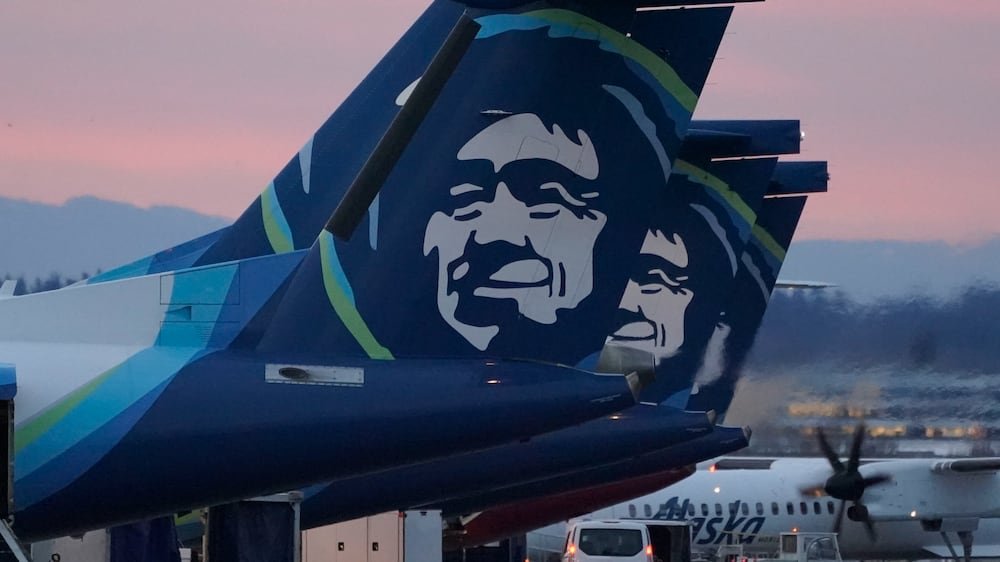Bahrain’s flag carrier Gulf Air is considering refreshing its fleet with new aircraft as it revamps its network to serve key financial hubs and premier leisure spots in Europe and Asia amid a supply backlog for new jets.
While the airline will be taking delivery of Airbus narrow-bodies and Boeing wide-bodies over the next three years, its fleet review is also taking into consideration the years-long record backlog at the plane makers and production challenges facing them, Jeffrey Goh, chief executive of Gulf Air Group Holding, told media.
“At this stage, the aircraft mix we have is appropriate … but we need to remain nimble as an organisation as we look to recalibrate our network, as we look to expansion opportunities and what aircraft type or variant would be more appropriate for us,” he said on the sidelines of the Future Aviation Forum in Riyadh on Monday.
“So, we are in the process of re-looking at our fleet … from the perspective of renewal purposes, so, replacement aircraft, because if you’re ordering from the factories there’s a fairly long lead time … we have to plan ahead for the renewal.”
The airline currently operates Airbus A320 Neos and A321 Neos and the older classic variants, along with Boeing 787-9s, in its fleet of 41 jets.
“Because of certain destinations, we may want to consider the 787-8s or the 787-10s, for instance,” Mr Goh said.
A decision on the fleet review could potentially be made in the second half of this year, with flexibility to make aircraft acquisitions through direct orders with plane makers or leasing aircraft, he said.
The fleet review comes as the airline, which turns 75 next year, is in the early stages of a multi-year restructuring.
Since joining in January 2023, Mr Goh has focused on a two-pillar strategy to take the loss-making airline forward.
The first is improving customer experience with initiatives such as complimentary Wi-Fi onboard, upgrading its airport lounges, a review of its in-flight catering and an overhaul of its loyalty programme that will be announced by the beginning of 2025.
The second strategic pillar is re-assessing the airline’s route network.
Network revamp
Gulf Air wants to boost its presence in key financial cities, such as Zurich and Tokyo, as well as premium leisure destinations, such as Spain, Mr Goh said. It is also seeking to increase frequencies to religious pilgrimage sites such as Madinah, Jeddah and Najaf.
The airline is “very focused and disciplined” about its network planning “because in the past perhaps a lack of discipline has allowed a lack of focus on what we need to be as an airline”, Mr Goh said.
“We have a task at the moment to recalibrate and rebalance our network … which will then redefine what kind of airline we want to be.”
The airline plans to target corporate travellers, tourists, pilgrims and workers.
Aviation supply chain troubles
Production issues and delivery delays at Boeing and Airbus have a “pretty severe” impact on the ability of airlines, including Gulf Air, to grow or even to maintain operations, Mr Goh said.
On top of that, problems at engine makers such as Pratt & Whitney have forced airlines, including the Bahraini carrier, to ground some of their aircraft as a result of a shortage in engine spare parts.
“In as much as airframe manufacturers are driving more sales of aircraft, reliability becomes an issue,” Mr Goh said.
“It’s very ironic if you end up buying an aircraft that sits on the ground. Whatever plans you have in terms of maintaining your current network or developing growth in your network, it isn’t going to be served by aircraft that are sitting on the ground.”
Alaska Airlines grounds Boeing 737 MAX 9 for checks after emergency landing

The aviation industry has been hobbled on several fronts by supply chain constraints lingering since the Covid-19 pandemic.
Manufacturing woes at Boeing and defects in Pratt & Whitney engines are limiting the availability of aircraft, hampering airlines’ ability to meet strong travel demand.
Gulf Air has held talks with jet engine makers Rolls-Royce and CFM (which is owned by GE and France’s Safran) regarding its concerns.
“We cannot be more clear about our discontent,” Mr Goh said.
“They have been long on their promise and short in their delivery.”
The supply chain problems have affected Gulf Air’s growth plans as it had to delay increasing frequencies on certain routes, he said.
2024 outlook
Gulf Air expects to carry 5.5 million to 6 million passengers this year, slightly higher than the 5.3 million in 2023, Mr Goh said.
In the first quarter of 2024, passenger volumes grew 5 per cent year-on-year.
Gulf Air is “cautiously optimistic” about continued strong demand during the rest of the year, as the appetite for travel outpaces limited seat capacity, he said.
Bookings for London, Bangkok, Frankfurt have shown “good demand”, while forward bookings to China also look strong, after the airline announced new routes to Shanghai and Guangzhou starting from the end of May.
Gulf Air’s load factor – a measure of filling available seats – stood at 78 per cent in the first quarter, and it aims to end the year at similar levels.
The airline has suspended its flights to Tel Aviv in the wake of the Israel-Gaza war, now in its eighth month, and “there’s no question” that the conflict has affected Gulf Air and the travel and tourism industry in the Middle East, he said.
The carrier expects to narrow its loss this year, Mr Goh said, without providing further details.
It aims to break even by 2027, local media cited its chairman as saying in March.
Group plans
Gulf Air Group Holding is a conglomerate that includes Gulf Air, Bahrain Airport Company, BAC Jet Fuel Company and Gulf Aviation Academy. It also holds majority stakes in Bahrain Airport Services and Bahrain Duty Free.
While Gulf Air comprises about 75 per cent of the group’s activities, plans are under way for the rest of the companies in the group portfolio.
The group is looking to export its aviation services to international customers to support Bahrain’s economy and increase the kingdom’s “brand equity” abroad.
It is seeking contracts to provide airport management, ground-handling, simulator training and catering services to aviation clients outside Bahrain.
“We’re beginning to identify opportunities for internationalisation: Gulf Air is obviously an international flying billboard but … there is a good opportunity as a group with the strength that we have to export products and services and the brand of Bahrain,” Mr Goh said.
“You then have opportunities to invite and attract foreign direct investments because Bahrain becomes better known as a brand.”
As the airline marks its 75th anniversary next year, the timing is an opportunity to reflect on its history and on the airline it is shaping up to become, the executive said.
“Gulf Air is seeking a sustainable future … in the sense of a sustainable going concern as a business. That is the efforts going into the airline right now,” Mr Goh said.
Asked if the airline has plans to establish a low-cost arm, he said “there are no announcements to make”.






